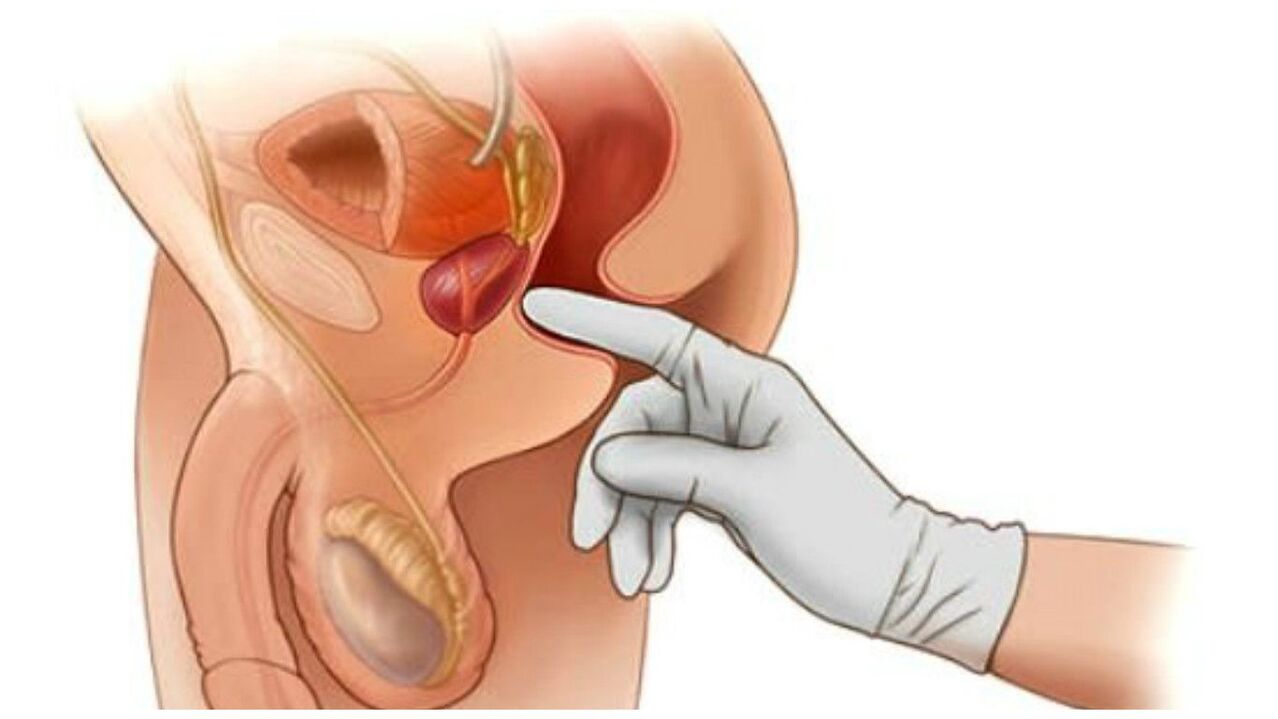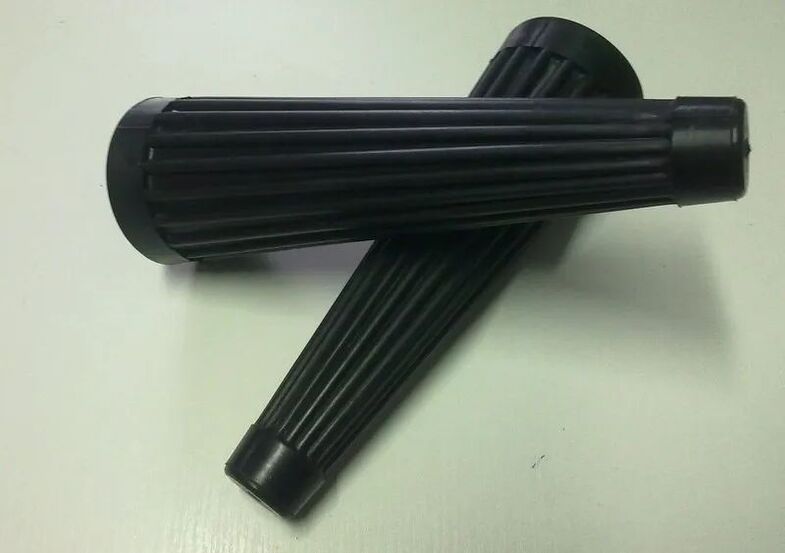As part of the complex treatment of inflammatory diseases of the prostate gland, special devices are often used - urological prostate massagers. They have a positive effect on the organ, prevent exacerbation of chronic prostatitis and increase potency. The main advantage of such devices is the ability to use them independently at home. There are different types of devices, and their use is limited by certain contraindications.
What is a prostate massager and why is it needed?
A urological prostate massager is a physiotherapeutic device that is used for local massage of the prostate gland for therapeutic purposes. The product is made of special materials for medical purposes and has an elongated shape. It is used at home and is a good alternative to digital prostate massage, which is performed in a clinic by a urologist.

Prostate massage at home does not reduce the effectiveness of this procedure. On the contrary, performing the manipulation at home helps to relax the patient, eliminating the feeling of stiffness and discomfort.
The therapeutic effect is achieved through direct stimulation of the diseased organ and manifests itself:
- normalization of the outflow of prostatic secretions at the time of ejaculation;
- eliminating congestion in the pelvic organs;
- clearing the prostate ducts;
- improving the penetration of drugs deep into the gland;
- increased blood circulation and normalization of metabolism;
- restoration of damaged tissues;
- disappearance of tissue swelling;
- reducing inflammation;
- increased tone of the prostate gland;
- removal of pus from the organ during purulent inflammation;
- eliminating signs of erectile dysfunction.
Indications and contraindications
The device for prostate massage should be used only on the recommendation of the attending physician.
Indications for the procedure are:
- Chronic prostatitis is in remission.
- Congestive prostatitis is a non-infectious inflammation due to congestion in the pelvis.
- Erectile dysfunction, manifested by premature ejaculation, loss of sensation during orgasm, and decreased potency.
- Impaired ability to reproduce, associated with poor sperm motility, increased sperm viscosity and other factors.
- The initial stage of BPH (benign prostatic hyperplasia).
The use of prostate stimulants is prohibited in the following cases:
- Acute prostatitis or exacerbation of chronic prostatitis. In this case, prostate massage can lead to injury to the organ and the spread of the inflammatory process. Even one procedure can provoke complications in the form of: vesiculitis - inflammation of the seminal vesicles; orchiepidymitis - inflammation of the testicle and its appendages; purulent prostatitis.
- Gland tumor.In case of oncology, any physiotherapeutic procedures are contraindicated.Otherwise, nutrition improves and tumor cell growth increases, which can lead to the spread of the malignant process to neighboring tissues and organs.
- Exacerbation of hemorrhoids. Physical impact on the rectum can cause bleeding from varicose veins.
- Anal fissure. The impact of the device on a crack can cause an increase in its size, increased pain and bleeding.
- Stones (calcifications) in the prostate gland. Carrying out a massage will inevitably lead to injury to organ tissue, which is dangerous for the development of purulent calculous prostatitis.
- Prostate tuberculosis. In this case, the massage procedure will provoke the spread of the infectious process.
- Diarrhea (stool disorder). Massage will increase the number of urges to defecate due to the irritating effect of the device on the rectum.
- Urogenital herpes.
- Genital condylomas of the anus.
In case of BPH, prostate massage is carried out with extreme caution. This is due to the ability of some forms of the disease to degenerate into a malignant tumor during physiotherapeutic treatment. Before using the massager, you should donate blood for PSA (prostate-specific antigen), the normal value of which is 0–4 ng/ml. Borderline and high numbers of this indicator are grounds for categorical refusal of procedures.
Main types
There are many different brands and forms of prostate massage devices, but they all fall into two groups:
- Internal or invasive - affects the prostate gland by inserting into the rectum.
- External or non-invasive - affect the prostate through the perineal area.
The most effective devices are considered to be invasive massagers, which affect the affected organ in various ways:
- Thermal. Through a local increase in temperature, blood circulation in the prostate gland improves. This helps eliminate congestion in the organ, reduce swelling and relieve pain.
- Vibrating. Vibration helps to increase the tone of the gland tissue and release blocked ducts from contents, resulting in a decrease in inflammation.
- Magnetic. Provides restoration of damaged prostate tissue, eliminates pain and pain during urination, dilutes prostatic secretions and reduces its volume.
Another positive quality of invasive devices is the enhancement of potency and the man receiving pleasant sensations from the procedure.
Invasive prostate stimulators include electric massagers. The operating principle of such devices is to influence the gland through special electrodes. The current strength during the procedure is adjusted by the doctor based on the patient’s feelings. All a man feels is a slight discomfort in the pelvic area. Massage can be performed in two ways:
- One of the electrodes is inserted into the patient’s urethra, and the second is fixed in the tailbone area.
- One electrode is attached to the pubic area, and the second is inserted into the rectum.
Non-invasive devices are less effective than direct massagers. Most often they are used for prophylactic purposes. With their help, a small amount of stagnant fluid is removed. The principle of operation of such devices is to activate the gland by stimulating the pubococcygeus muscle.
Best models
The simplest models of manual invasive massagers work like a vibrator, that is, they are equipped only with a vibration function. More expensive devices combine several methods of influence: magnetic, thermal and vibration.
The best non-invasive prostate massager is a device that has a gentle massage effect on the pubococcygeus muscle, thereby activating the prostate gland and relieving it of congestion.

Recommendations for use
Prostate massage using invasive massagers has certain rules:
- Colon cleansing before the procedure. If you have constipation, you can seek help from laxatives or microenemas.
- Hygiene of the anus and genitals to avoid pathogenic microflora from entering the mucous membranes.
- Bladder filling. An hour before prostate stimulation, you need to drink 0. 5-1 liter of water. Massage with a full bladder is more effective.
- Using a condom (to protect the device) and lubricant (to make it easier to insert the device into the rectum). The lubricant must be water-based, since silicone or an oil solution can damage the integrity of the condom and damage the massager. In addition, such lubricants often cause allergies.
- Comfortable body position. The best position for prostate massage is lying on your left side, with your legs bent at the knees and pressed to your stomach. This provides convenience during the procedure and facilitates comfortable insertion of the tip.
- Insert the device to a depth of about five centimeters.
- The first procedure takes no more than five minutes. Subsequently - up to eight minutes.
- Device processing. After each procedure, it is necessary to wipe the device with a disinfectant solution or alcohol.
- Emptying the bladder. If ejaculation does not occur during the massage, then you should urinate immediately after the procedure. Prostatic secretions and pathogenic microorganisms are excreted along with urine.
Non-invasive devices are easy to use and do not require any preparation for manipulation. It is enough to correctly position the device in the perineal area and wait until the procedure is completed.
During treatment, you should not give up sexual life if there is no discomfort or pain. Regular ejaculation improves drainage of the prostate gland.
In married couples, the wife can help her husband perform prostate massage. This will not only be more convenient for a man, but will also diversify your sex life.
How to choose?
For ease of use and to achieve maximum therapeutic effect, it is necessary to take into account some rules for choosing a device.
| Criterion | Selection Rule |
| Purpose | Special urological prostate massagers are highly effective, not "toys" purchased in a sex shop |
| Multifunctionality | It is best to give preference to devices that have a complex (thermal, vibration and magnetic) effect on the gland |
| Manufacturer | The best countries producing prostate massagers are France, Germany and the USA. Chinese products are of low quality and do not meet medical standards |
| Material | High-quality models are made from hypoallergenic materials such as medical plastic, latex, silicone, cyberskin |
| Form | The product must have an anatomical shape |
| Diameter | Thin devices with a diameter of about two centimeters are considered the most convenient. |
| Operating modes | It is better if the device is equipped with several operating modes |
If you have difficulty making a decision about choosing a device, you can seek help from a doctor. He will tell you which massager is needed, taking into account the health status and individual characteristics of the patient.
Most representatives of the male population, due to natural shyness, try to avoid medical prostate massage. For their comfort, special devices have been developed for home use, which can be purchased at a pharmacy or ordered in an online store.















